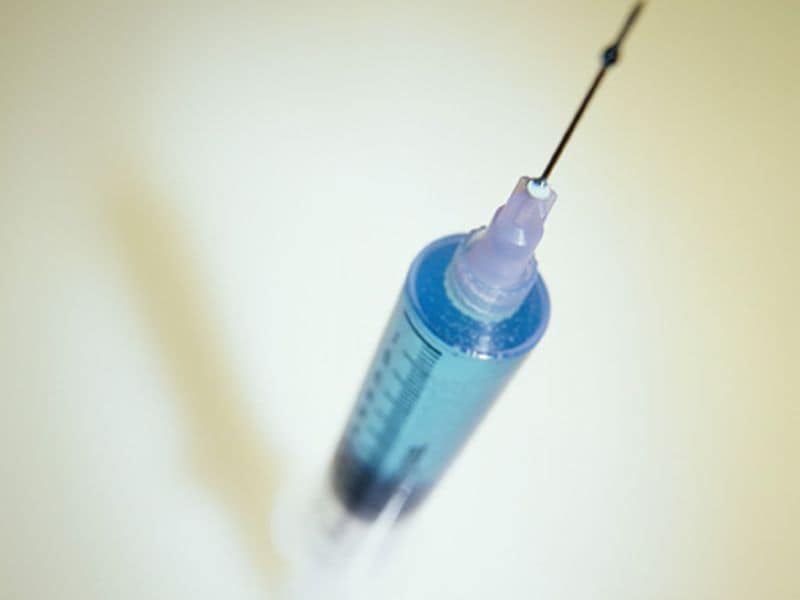TUESDAY, May 21, 2019 (HealthDay News) — Dupilumab is associated with significantly reduced severe exacerbation rates in patients with late-onset asthma with or without fixed airway obstruction, according to a study presented at the American Thoracic Society 2019 International Conference, held from May 17 to 22 in Dallas.
Nicola Alexander Hanania, M.D., from the Baylor College of Medicine in Houston, and colleagues examined the efficacy of dupilumab in patients with late-onset asthma and with baseline postbronchodilator forced expiratory volume in one second/forced vital capacity (FEV1/FVC) ratio <0.7 (indicating fixed airway obstruction) or ≥0.7 in a post hoc analysis of data from the phase 3 LIBERTY ASTHMA QUEST study.
The researchers found that compared with placebo, dupilumab 200 mg and 300 mg every two weeks significantly reduced the annualized rate of severe exacerbations in patients with late-onset asthma and fixed airway obstruction (−68.8 and −75.7 percent, respectively) and in patients without fixed airway obstruction (−55.1 and −50.7 percent, respectively). Pre- and postbronchodilator FEV1 and FEV1/FVC ratio improved in dupilumab-treated patients with late-onset asthma and fixed airway obstruction at week 12; similar improvements were seen at week 52. More modest improvements were seen for prebronchodilator FEV1 at weeks 12 and 52 in late-onset asthma patients without fixed airway obstruction.
“Lung function improvements were observed at Weeks 12 and 52 in patients with late-onset asthma and fixed airway obstruction, who typically experience worse asthma outcomes than do those without fixed airway obstruction,” the authors write.
Several authors disclosed financial ties to Sanofi and Regeneron Pharmaceuticals, the manufacturers of dupilumab.
Copyright © 2019 HealthDay. All rights reserved.



